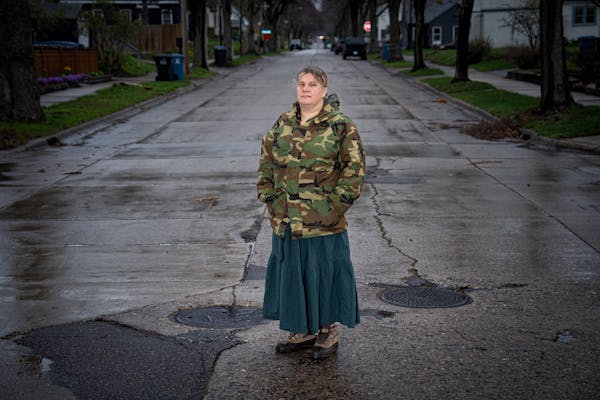In what may be the largest 9/11 gathering of its kind in the country, Minnesotans of many faiths and creeds will assemble Sunday on the State Capitol lawn under the banner "Remembering, Healing, Hope."
Remembering is easy on this 10th anniversary of Al-Qaida's attacks. The horror in New York, Washington and Pennsylvania is seared into the minds of Americans who were of conscious age 10 years ago.
And reminders that 19 airplane hijackers murdered 2,976 people have been unavoidable in recent days, as has been the emotional echo of that trauma to the nation's psyche.
Healing and hope are less assured today, but they are much to be desired. They are essential antidotes to the fear that has too strongly colored the nation's response to the worst external attacks on domestic soil in modern history.
That response has succeeded in weakening Al-Qaida -- though not in eradicating it or other similar groups -- and in foiling numerous plots to harm Americans and their allies. But whatever gain in U.S. security has been won since 2001 has come at a high price -- higher than might have been paid had fear not been so dominant a driver of American thinking.
Two protracted wars, both sold with dubious claims as necessary for American security, have cost the lives of some 6,000 American soldiers -- not to mention well more than 100,000 civilian deaths in Afghanistan, Iraq and Pakistan.
That sacrifice has produced decidedly mixed results.
None of those three countries is a lock-sure U.S. ally going forward. None is free of the jihadist violence that Americans sought to spare themselves when they went to war.
Both wars produced a counterproductive backlash in Arab nations and strained U.S. alliances around the globe. Anti-American sentiment in the Arab world still runs dangerously high.
The cost of these wars has been pegged at $4 trillion. That's in addition to the hundreds of billions spent on homeland security, some of it in ways that seem more soothing than smart.
The billions spent screening airline passengers, for example, seems more intended to assuage travelers' post-9/11 fear of flying than to maximize security. Meanwhile, less visible measures, such as improved data sharing among law enforcement jurisdictions, remain works in progress.
A good portion of America's post-9/11 spending must be counted as opportunity lost to enhance the kind of security Americans today crave most -- economic security.
The nation behaved like a panicked shopper after 9/11, pulling out the national credit card and spending frantically without a plan for paying the bill. Today's heavy national debt can be traced nearly as much to the 9/11 response as to the burst of the housing bubble and collapse of financial markets in 2008.
The price of fear runs higher still when one counts the trampling of American values at Abu Ghraib and Guantanamo, the rise of what's been called a "surveillance society" in the United States, and the wedge that has been driven between Muslims and other Americans.
A recent poll by the Public Religion Research Institute found that nearly half of Americans see Islam as at odds with American values. That sense has likely been intensified by political opportunists who have stoked unfounded fears about Islamic sharia law's legal influence.
Indeed, fear-mongering has become a staple of American political discourse in the last 10 years.
The strategy paid electoral dividends, but fear is a poor foundation on which to build the policies of the world's most powerful democracy. Over time, it will weaken the United States. Many would say that it already has.
One rally on Minnesota's front lawn this afternoon won't shake off a nation's fears and replace them with healing and hope. But the organizers of "Minnesotans Standing Together" have latched on to something crucial to that transformation -- respect for diversity of religious and political thought.
The rally offers participants a chance to give public witness to the hope that's embedded in America's founding values.
It's the idea that people of many beliefs and backgrounds can come together, speak their minds, pray and assemble as they will, and participate in the governance of a nation. It's the faith that if they do, the nation will thrive.
As the Rev. Peg Chemberlin, head of both the Minnesota and National Council of Churches, put it last week, respect for that ideal and for the people who embody it is "a requirement of democracy." America can't pivot from fear to hope without it.
* * *
Readers, what do you think? To offer an opinion considered for publication as a letter to the editor, please fill out this form. Follow us on Twitter @StribOpinion and Facebook at facebook.com/StribOpinion.

